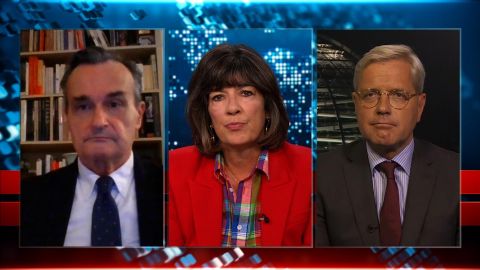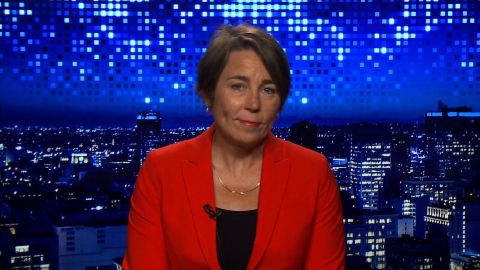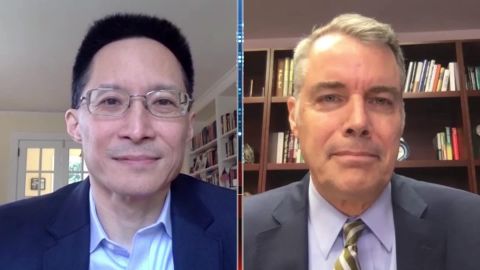Read Transcript EXPAND
NORBERT ROTTGEN, CHAIRMAN, BUNDESTAG FOREIGN AFFAIRS COMMITTEE: We are worried, of course, because we have always been oriented to reality and to the facts and we see — have to face the rise of infections and we know what is going to happen, that autumn and winter is coming, that we will see flu and fever diseases. So, we have to prepare and we have to try to repeat a good communication, which can people trust in. And it’s extremely important that the level of cooperation and coordination does increase and improve on the federal level. So, this was an important gathering today with concrete results. I’m quite satisfied about the outcome.
CHRISTIANE AMANPOUR: OK. Well, you say that, but you just mentioned a word that’s very important and that’s trust. And I want to put it to both you and Ambassador Araud. Ambassador Araud, in France, you’ve got two major cities which are under some kind of a lockdown, X and Marseille in the southern part of your country. You’ve got a lot of protests on the street and word that there might be a second lockdown. I want to ask you and Norbert Rottgen, what can your democratically elected leaders do in the face of rising civilian and citizen opposition to these to these restrictions?
GERARD ARAUD, FORMER FRENCH AMBASSADOR TO THE U.S.: No, I think you’re perfectly right to ask the question. We see in France and I think we see it in the U.K., maybe less in Germany, a surge of the virus. The number of fatalities in France went from less than 10, now, we are on 16 a day. And the number of new cases is doubling every seven days in France. In April, it was every three days. So, we are really in the middle of a worrying process. We have taken new decisions of lockdown, partial lock down. For instance, in Paris, the clubs, the sport clubs are closed, the restaurants will be closed after 10:00 p.m. and so on, and the people are rebelling. In a sense, the young people are saying, sorry, guys, it’s not our disease. You know, the average age of the people who died from the virus in France is 83. So, they said — and the economy, the economy price is too high. So, there is a real rebellion. Not only in Marseille, but everywhere. And I saw there were also demonstrations in London. So, it’s quite a challenge for the democratic governments to try, Mr. Rottgen said, to try to get to the trust of the people.
About This Episode EXPAND
Christiane speaks with Massachusetts Attorney General Maura Healy about election interference. She also speaks with Gérard Araud and Norbert Röttgen about how Europe is handling COVID-19. Michel Martin speaks with Eric Liu and Pete Peterson about how to create more resilient democracies.
LEARN MORE


